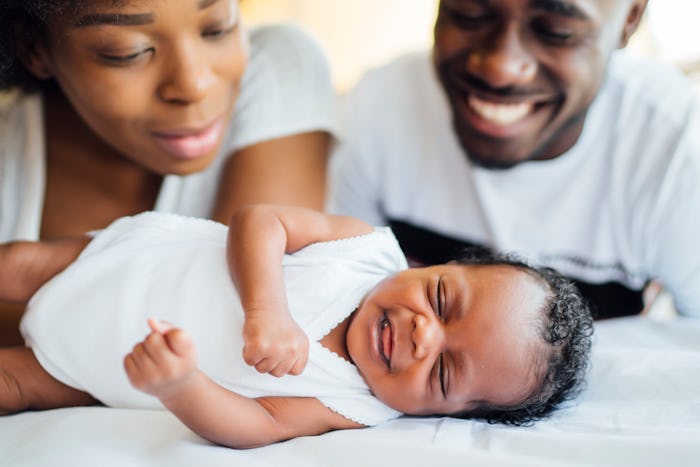News

A New Study Has Pinpointed The Best & Worst States To Have A Baby In America
Parents often spend countless hours researching how to give their child the best start in life, but can where your baby is born make an impact? According to many experts, the answer is a resounding yes. So where's the best place to have a child in the United States? A new study from WalletHub has pinpointed the worst and best U.S. states to have a baby in as of 2020.
With a total score of 68.81 out of a possible 100, WalletHub named Massachusetts as the best state to have a baby in. It's followed closely by Minnesota with a score of 66.70, Vermont at 64.50, North Dakota and 64.19, and Rhode Island at 63.35. WalletHub's top 10 best states to have a child in continued with New Hampshire, which had a total score of 63.15, followed by Washington, D.C. at 61.20, Maine at 60.15, Washington state at 59.46, and Connecticut at 59.32.
To uncover the best states to have a baby in, WalletHub compared all 50 states and Washington, D.C. across four key areas: cost, health care, baby-friendliness, and family-friendliness.
Those areas were then further broken down into a total of 32 relevant metrics, each of which was assigned a corresponding weight toward a state's final score. These included things like the average cost of a conventional hospital delivery, the average cost of early infant health care, a state's infant and maternal mortality rates, the number of pediatricians per capita, the number of child care centers per capita, a state's parental leave policy, and more.
As you can see, no U.S. state scored particularly high in WalletHub's rankings. And while that's troublesome, it mirrors recent research from travel site Asher & Lyric and, separately, U.S. News & World Report's annual Best Countries Report. In its Raising a Family Index, Asher & Lyric ranked 35 Organization for Economic Co-operation and Development (OECD) countries using 30 statistics from well-known, trusted international sources. Out of 35 countries, the United States ranked 34, receiving an overall grade of F.
The United States performed slightly better in U.S. News & World Report's 2020 Best Countries for Raising Kids Report, ranking 18th out of 73 countries. To get its rankings, the news outlet looks at eight attributes: human rights, family-friendliness, gender equality environment, happiness, income equality, safety, public education system, and health care system.
So why do all these rankings matter? Well, according to experts the state and zip code a child is born in can have a very real impact on that child's future success. In a 2015 PBS article, Nobel Prize winning economist James Heckman was quoted as having written "the accident of birth is the greatest source of inequality in America today" in his book Giving Kids a Fair Chance. "Children born into disadvantage are, by the time they start kindergarten, already at risk of dropping out of school, teen pregnancy, crime, and a lifetime of low-wage work," Heckman wrote in his book, according to PBS.
As for WalletHub's rankings of the worst states to have a baby in? You might want to avoid Alabama, the state ranked dead last with a score of 25.25. South Carolina at a score of 27.21, Mississippi at 27.82, Louisiana at 29.02, and Georgia, at 30.17, rounded out the news outlet's worst five states to have a baby in.